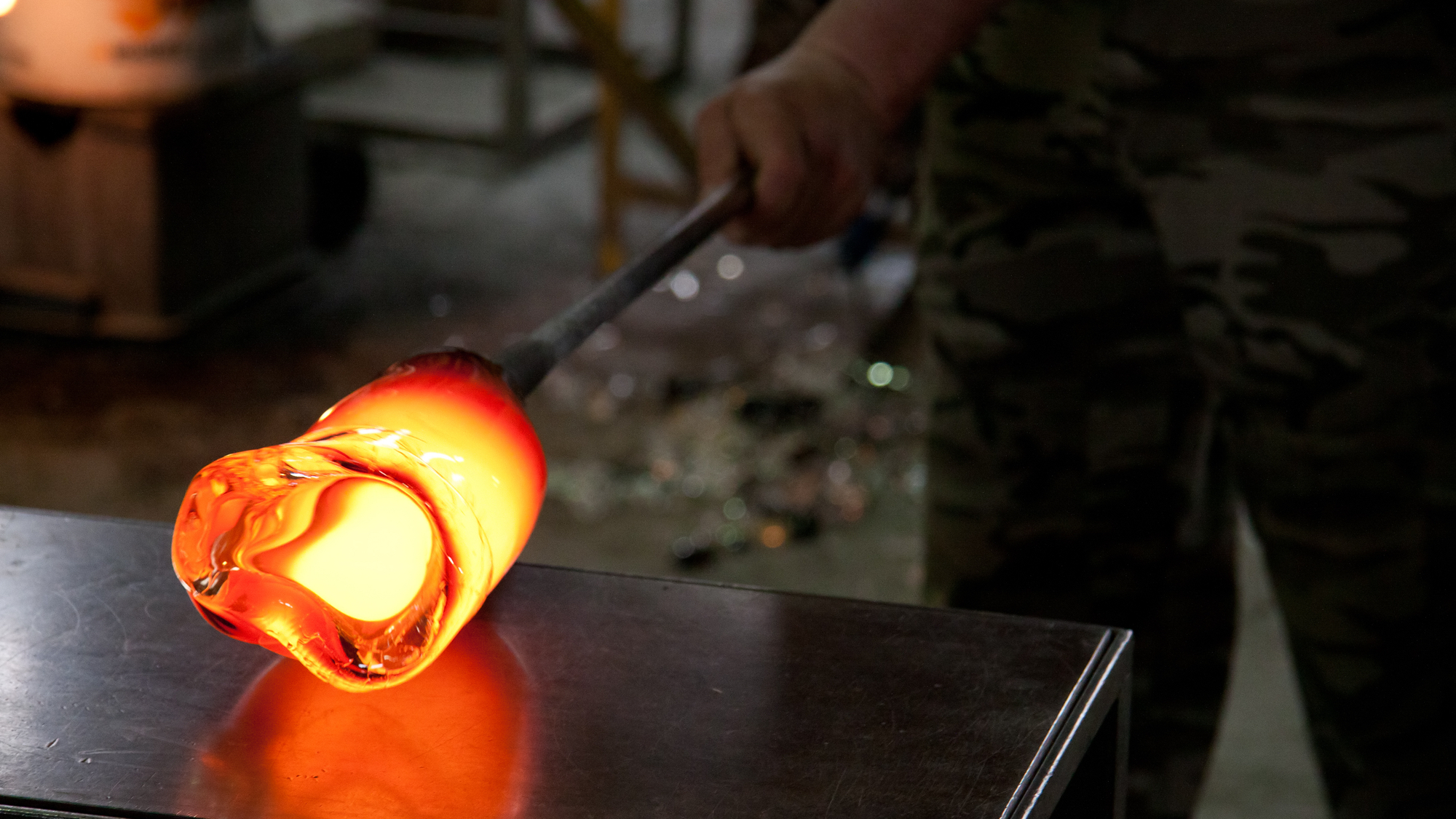

The basic principles behind glassmaking have stayed virtually the same for thousands of years. Naturally occurring crushed quartz may have been some of glassmakers’ earliest ingredients, but sand, soda ash and limestone is used instead today. These mass-produced glass materials that make our favorite wine glasses, the windows in our homes, and screens on our cell phones are far from biodegradable. In fact, at least one study shows glass bottles are more harmful than plastic equivalents, and recycling them is notoriously difficult.
Given how much glass is around us and gets produced every year, that can be a problem for the environment. Knowing this, researchers recently set out to develop a new form of sustainable, eco-friendly glass—with some very promising results.
[Related: How glass blowing works.]
Detailed in an article published on Friday in Science Advances, a team led by Yan Xuehai at the Chinese Academy of Sciences’ Institute of Process Engineering (IPE) has engineered a new form of biodegradable, biorecyclable glass made from biologically derived amino acids, or peptides projected to have minimal impact on the environment.
Eco-friendly bio-glass has so far been largely unsustainable. The materials’ biomolecular makeup possesses poor thermal stability, and breaks down at the high temperatures usually required during glass production. By chemically altering the amino acids and peptides, however, the team created a novel version of natural glass that is far more durable than its predecessors. According to their findings, the new biomolecular glass is both impressively sustainable and recyclable, while also featuring many of the desired traits of standard glass products, including malleability and durability.
[Related: Google finally killed off its Google Glass AR headset.]
Unfortunately, this new biodegradable glass won’t be installed in your sunroom anytime soon. In a statement, Xuehai explains that “the concept of biomolecular glass, beyond the commercially-used glasses or plastics, may underlie a green-life technology for a sustainable future. However, the biomolecular glass is currently in the laboratory stage, and far from large-scale commercialization.”
Still, the very fact that the team at IPE pulled off a new, green glass could provide a much-needed boost for other researchers looking to achieve similar goals. The need for glass, despite its many issues, isn’t going anywhere as the world continues attempting to shift towards a sustainable future—solar panels, for example, currently require copious amounts of glass to manufacture. Biodegradable variants may still need fine-tuning, but the recent breakthrough shows their potential.
